
The Senegal River has seen considerable migration of people in view of worsening drought and desertification. Furthermore, it is subjected to threats such as loss of arable land, and pollution from waste. To address the problems and to realise the potential of the basin, the Senegal River Development Organisation was established by three of the riparian states. This case gives important insights into how an institutional and legal infrastructure can be built in stages.

The Pungwe River basin offers significant opportunity for economic growth for Mozambique. The rate of economic success depends to a great extent on the implementation of IWRM. Action was taken to assess the progress of IWRM using a set of indicators addressing relevant areas. It became evident that implementing IWRM takes time and in order to reach success, implementation of IWRM has to follow the pace that can be adopted by all involved parties.

The Lake Victoria Basin is facing major ecological challenges stemming from unsustainable agriculture practices and deforestation, impacting the livelihoods of the local communities. Actions have been taken, including an action plan for management of the basin and the establishment of Lake Victoria Basin Commission, responsible for management initiatives. This case study provides insights into the link between policy formulation and implementation and enforcement. Especially, it demonstrates the importance of rooting the policies within the local communities.
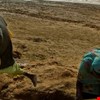
Lake Chad is an important resource, both in terms of economic development and biodiversity. However, unsustainable management of natural resources, population increase and desertification pose severe challenges. Action has been taken by the WWF and its partners to promote sustainable management. This case illustrates that independent organisations, such as WWF, can play a unique role as a catalyst and facilitator for change.
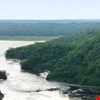
Complex environmental, social, economic and political structures make the Nile hard to manage. The Nile basin states have, because of these issues, collectively recognised the need to protect, manage and utilize the Nile basin in an integrated sustainable manner through a close co-operation. Action was taken and the Nile basin states formed the Nile Basin Initiative. This illustrate the opportunities created by multidisciplinary networks to solve complex environmental problems, stemming from their broad platform.
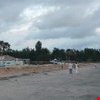
The Volta River basin remained one of the few unregulated transboundary watercourses in Africa. Action was taken to improve water governance and water management practices. Although this is still in progress, it has resulted in multi-scale participatory governance frameworks for joint management. From this process, it is evident that building a local knowledge base with good data and information systems is important in deciding the most efficient allocation of resources.
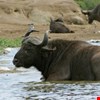
The cattle corridor of Uganda has semi-arid characteristics, high variability of rainfall and droughts. The main economic activities in this area are pastoralism and crop production. Historically, the area has been well known for reliance on mobile pastoralism as an important strategy to cope with resource variability. However, people’s abilities to cope greatly weakened as the impacts of disasters became frequent and severe. The recurrence of droughts in the Aswa-Agago Sub-Catchment has been exacerbated by climate change. This has compromised the ability of populations and ecosystems in the area to recover from the shocks.
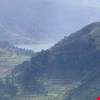
Uganda is currently experiencing rapid depletion of water resources, which, in addition to ecological challenges, is leading to conflicts in some parts of the country. The Ugandan government has taken action and formulated policies and policy regimes to regulate land use and impacts on the environment. Despite the existence of laws and regulations, this case study illustrates the discrepancy between policy formulation and the reality of implementation on the ground.

In Uganda, the National Water and Sewerage Corporation (NWSC) provide most drinking water, however, this is predominantly in urban areas. Attempting to improve water provision in rural areas, a programme supported by the World Bank was initiated. The main action taken was to commercialising service delivery through public-private partnerships. Despite being viewed as a great success, this case study highlights that circumstances can change and thus be different from those anticipated during the bidding stage.
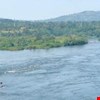
Uganda is faced with water scarcity, deteriorating water quality, floods and droughts, issues which are all negatively impacting Uganda's quest for economic and social development. The situation has, however, been improving with the launch of a Water Action Plan which promotes IWRM as an integral part of its strategy. Examining this case clearly illustrates that long term sustainability aspects such are often overlooked and instead, the focus is on short term domestic provision.